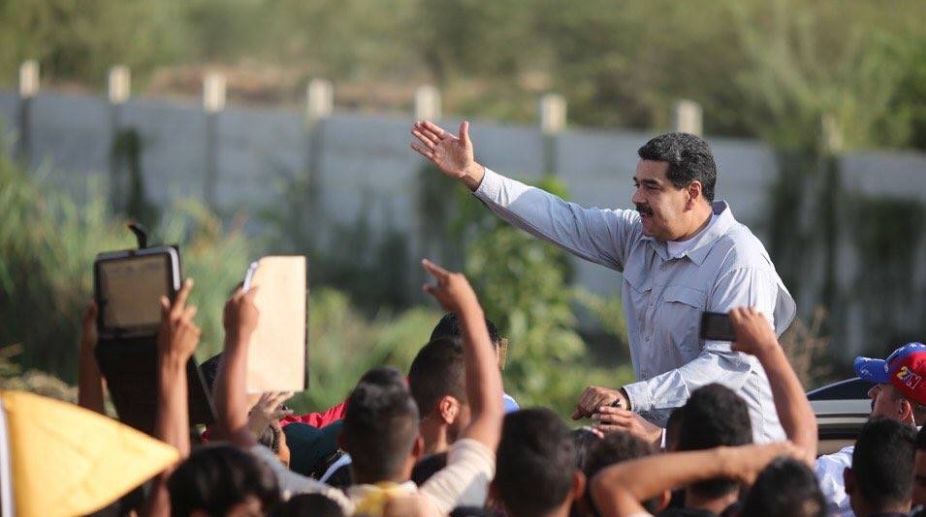Venezuela’s oppn-controlled Parliament dissolves interim govt
The National Assembly will assume some of Guaido's responsibilities and appoint a commission to manage and protect foreign assets, which were under his care.

Nicolas Maduro (Photo: Facebook)
Venezuela is in crisis. The government of President Nicolas Maduro has been jolted to its foundations in Sunday’s referendum, however symbolic. More than 7.1 million people have rejected the Government’s plan to rewrite the Constitution as also Maduro’s plans for the 30 July election of an assembly that would remake the country’s political system.
The President is palpably fighting a losing battle against his political opponents, and most importantly the people. The opposition has conveyed a pregnant message with its leader, Freddy Guevara, announcing to the country that “it is time for zero hour”. In the immediate perspective, this will entail an escalation in street protests and a 24-hour national strike later this week.
Beyond the agitprop, the opposition-controlled National Assembly has emitted a critical signal of intent ~ to name new members of the country’s Supreme Court, a move that will almost certainly lead to a confrontation with Maduro, whose ruling Socialist Party controls the judiciary.
Advertisement
A constitutional crisis is imminent with the legislature set to confront the fragile executive and its loyal judiciary. It is a measure of the crisis that has been building up that the President’s allies have urged the assembly to impose what they call “executive branch authority” over the few remaining institutions that are beyond the control of Venezuela’s ruling Socialist Party.
The political convulsions have resulted in casualties in terms of human life no less. More than three months of opposition protests have left at least 93 people dead and 1,500 wounded.
More than 500 protesters and opponents of the government have been jailed. Another Latin American country showcases a fierce struggle between the people and a brittle government. Sunday’s opposition vote was suitably robust, but not as overwhelming as the opposition’s 7.7m vote-performance in the 2015 legislative elections and the 7.5m votes that brought Maduro to power in 2013.
Opposition leaders have attributed the decline to the fact that only 2,000 polling stations had been set up in a symbolic exercise that the government had described as illegitimate. Nonethess, the outcome renders the outlook in Venezuela direly uncertain. The result is bound to impinge on the response of the comity of nations which is likely to go against Maduro’s planned election on 30 July.
The message conveyed by Sunday’s exercise will almost certainly erode his credibility as Head of State in a beleaguered country. Overall, this vote makes it difficult for the government to proceed as planned.
The President is hardly in a position to set the terms of engagement and the international community may well be emboldened to reject the agenda of the government in Caracas.
Virtually every voter answered “yes” as the electorate rejected the move to rewrite the Constitution. President Maduro has his back to the wall.
Advertisement